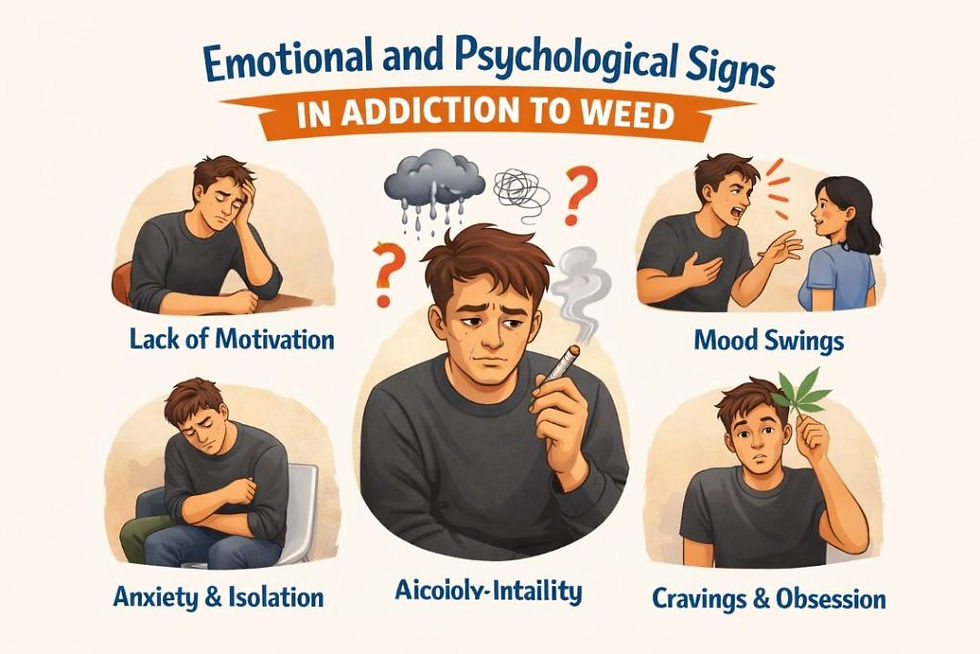Borderline Personality Disorder: Signs and Treatment Options
- Felicia Parris

- May 22, 2025
- 3 min read
Borderline Personality Disorder (BPD) is a complex mental health condition that affects how individuals think, feel, and interact with others. Marked by emotional instability, an intense fear of abandonment, and impulsive behavior, BPD can significantly disrupt relationships, self-image, and daily functioning. Understanding the symptoms, causes, and treatment options is crucial for individuals living with BPD, as well as for the loved ones who support them.
At DeLand Treatment Solutions, we provide compassionate, evidence-based care for people facing BPD and other mental health challenges.

What Is Borderline Personality Disorder?
Borderline Personality Disorder is one of several personality disorders classified in the Diagnostic and Statistical Manual of Mental Disorders (DSM-5). It involves a long-standing pattern of emotional volatility, impulsive behavior, and unstable interpersonal relationships, often leading to self-destructive actions and difficulty managing stress.
Roughly 1.4% of adults in the United States are diagnosed with BPD, with women more commonly affected than men.
Common Symptoms and Signs of BPD
Recognizing the signs of BPD is the first step toward effective treatment and healing. Individuals with BPD may experience:
1. Emotional Instability
Intense and rapidly shifting moods that may last from a few hours to several days. Emotions can quickly move from happiness to anger, anxiety, or deep sadness.
2. Fear of Abandonment
An overwhelming fear of rejection or being left alone, often resulting in desperate efforts to avoid real or imagined abandonment.
3. Unstable Relationships
Turbulent relationships characterized by extreme shifts between idealizing and devaluing others, commonly known as “splitting.”
4. Distorted Self-Image
A fluctuating and unstable sense of self, leading to frequent changes in values, goals, or career plans.
5. Impulsive Behaviors
Engaging in risky or harmful actions, such as substance abuse, reckless driving, binge eating, or unsafe sex, as a way to cope with emotional pain.
6. Self-Harm and Suicidal Behavior
Behaviors such as cutting, burning, or suicidal thoughts and attempts are sadly common among those with BPD.
7. Chronic Feelings of Emptiness
A persistent sense of emptiness, emotional numbness, or feeling disconnected from others.
8. Intense or Uncontrolled Anger
Frequent outbursts of anger that are disproportionate to the situation and often difficult to control.
What Causes Borderline Personality Disorder?
The exact cause of BPD is not fully understood, but research points to a combination of genetic, neurological, and environmental influences:
Genetics: A family history of BPD or other mental health disorders may increase susceptibility.
Brain Function: Imbalances in brain chemicals such as serotonin, as well as structural brain abnormalities, may affect emotional regulation.
Trauma and Abuse: Many individuals with BPD report histories of childhood trauma, including neglect, abuse, or abandonment.
Environmental Factors: Growing up in an unstable, invalidating, or emotionally neglectful environment can contribute to the development of BPD.
Effective Treatment Options for BPD
While BPD can be difficult to live with, it is highly treatable. With the right combination of support, therapy, and medical care, individuals can learn to manage symptoms and lead fulfilling lives. At DeLand Treatment Solutions, we offer personalized treatment programs designed to meet the unique needs of those living with BPD.
1. Dialectical Behavior Therapy (DBT)
Considered the gold standard in BPD treatment, DBT helps individuals develop skills in mindfulness, distress tolerance, emotion regulation, and interpersonal effectiveness.
2. Cognitive Behavioral Therapy (CBT)
CBT focuses on identifying and changing negative thought patterns and behaviors that contribute to emotional instability.
3. Medication Management
Although there is no medication specifically approved for BPD, antidepressants, mood stabilizers, and antipsychotics may help manage related symptoms like depression, anxiety, or impulsivity.
4. Individual and Group Therapy
Therapy provides a safe, supportive environment for individuals to explore emotions, build coping strategies, and foster healthier relationships.
5. Residential and Outpatient Programs
Structured treatment settings offer comprehensive care and support, particularly during periods of crisis or severe symptom escalation.
Support Is Available at DeLand Treatment Solutions
If you or someone you love is struggling with Borderline Personality Disorder, help is available and healing is possible. At DeLand Treatment Solutions, we provide expert, compassionate care tailored to your journey. Our team of licensed professionals is dedicated to helping you build stability, resilience, and hope for the future.
📍 Contact us today at (386) 866-8689 or visit DeLand Treatment Solutions to learn more about our comprehensive mental health programs and how we can support your recovery from BPD.



Comments